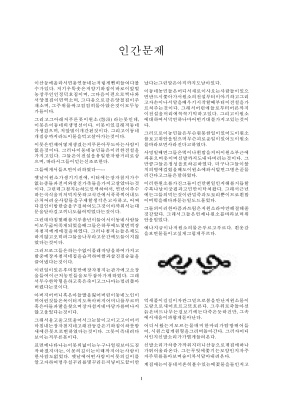Выходные данные неизвестны. — 95 p. (in Korean)
Kang Kyong-ae (20 April 1906 – 26 April 1944) was a Korean writer,
novelist and poet involved with the Feminist movement. She is also
known by her penname Kang Gama.
Kang is often mentioned by literary critics as one of the foremost female writers of the colonial period. Different from other prominent female authors of the time, such as Na Hye-sok and Heo Jong-suk, she focused solely on fiction and essay writing and did not branch out into other forms of artistic expression such as painting. She produced works focusing on the Korean underclass often based on her experiences with extremely poor Koreans in Manchuria, where many of her works took place. These include: "The Broken Geomungo" (Pageum), "Vegetable Garden" (Chaejeon), "Football Game" (Chukgu jeon), and "Mother and Child" (Moja). She also wrote proto-feminist works focusing on women’s oppression including "Mothers and Daughters" (Eomeoni wa ttal). Most of her works are anti-love/anti family, in which only those women who cut their ties with their failed relationships can achieve freedom.
From Wonso Pond (Ingan munje), which many consider her best work, is her only novel and deals with a multiplicity of class and gender issues.
Kang is often mentioned by literary critics as one of the foremost female writers of the colonial period. Different from other prominent female authors of the time, such as Na Hye-sok and Heo Jong-suk, she focused solely on fiction and essay writing and did not branch out into other forms of artistic expression such as painting. She produced works focusing on the Korean underclass often based on her experiences with extremely poor Koreans in Manchuria, where many of her works took place. These include: "The Broken Geomungo" (Pageum), "Vegetable Garden" (Chaejeon), "Football Game" (Chukgu jeon), and "Mother and Child" (Moja). She also wrote proto-feminist works focusing on women’s oppression including "Mothers and Daughters" (Eomeoni wa ttal). Most of her works are anti-love/anti family, in which only those women who cut their ties with their failed relationships can achieve freedom.
From Wonso Pond (Ingan munje), which many consider her best work, is her only novel and deals with a multiplicity of class and gender issues.

